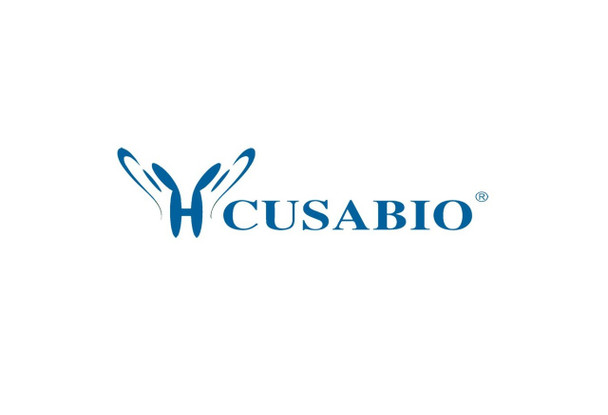Cusabio Human Recombinants
Recombinant Human G-protein coupled receptor 161 (GPR161), partial | CSB-RP041144h
- SKU:
- CSB-RP041144h
- Availability:
- 13 - 23 Working Days
Description
Recombinant Human G-protein coupled receptor 161 (GPR161), partial | CSB-RP041144h | Cusabio
Alternative Name(s): G-protein coupled receptor RE2
Gene Names: GPR161
Research Areas: Signal Transduction
Organism: Homo sapiens (Human)
AA Sequence: MSLNSSLSCRKELSNLTEEEGGEGGVII
Source: E.coli
Tag Info: N-terminal GST-tagged
Expression Region: 1-28aa
Sequence Info: Partial
MW: 30 kDa
Purity: Greater than 90% as determined by SDS-PAGE.
Relevance: Key negative regulator of Shh signaling, which promotes the processing of GLI3 into GLI3R during neural tube development. Recruited by TULP3 and the IFT-A complex to primary cilia and acts as a regulator of the PKA-dependent basal repression machinery in Shh signaling by increasing cAMP levels, leading to promote the PKA-dependent processing of GLI3 into GLI3R and repress the Shh signaling. In presence of SHH, it is roved from primary cilia and is internalized into recycling endosomes, preventing its activity and allowing activation of the Shh signaling. Its ligand is unknown .
Reference: Isolation of cDNA coding for G-protein coupled receptor RE2.Warren C.N., Aronstam R.S., Sharma S.V. Identification of a novel G-protein coupled receptor expressed in distinct brain regions and a defined olfactory zone.Raming K., Konzelmann S., Breer H.Recept. Channels 6:141-151(1998)
Storage: The shelf life is related to many factors, storage state, buffer ingredients, storage temperature and the stability of the protein itself. Generally, the shelf life of liquid form is 6 months at -20?/-80?. The shelf life of lyophilized form is 12 months at -20?/-80?.
Notes: Repeated freezing and thawing is not recommended. Store working aliquots at 4? for up to one week.
Function: Key negative regulator of Shh signaling, which promotes the processing of GLI3 into GLI3R during neural tube development. Recruited by TULP3 and the IFT-A complex to primary cilia and acts as a regulator of the PKA-dependent basal repression machinery in Shh signaling by increasing cAMP levels, leading to promote the PKA-dependent processing of GLI3 into GLI3R and repress the Shh signaling. In presence of SHH, it is removed from primary cilia and is internalized into recycling endosomes, preventing its activity and allowing activation of the Shh signaling. Its ligand is unknown (By similarity).
Involvement in disease:
Subcellular Location: Cell projection, cilium membrane, Multi-pass membrane protein, Cell membrane, Multi-pass membrane protein
Protein Families: G-protein coupled receptor 1 family
Tissue Specificity:
Paythway: Hedgehogsignalingpathway
Form: Liquid or Lyophilized powder
Buffer: If the delivery form is liquid, the default storage buffer is Tris/PBS-based buffer, 5%-50% glycerol. If the delivery form is lyophilized powder, the buffer before lyophilization is Tris/PBS-based buffer, 6% Trehalose, pH 8.0.
Reconstitution: We recommend that this vial be briefly centrifuged prior to opening to bring the contents to the bottom. Please reconstitute protein in deionized sterile water to a concentration of 0.1-1.0 mg/mL.We recommend to add 5-50% of glycerol (final concentration) and aliquot for long-term storage at -20?/-80?. Our default final concentration of glycerol is 50%. Customers could use it as reference.
Uniprot ID: Q8N6U8
HGNC Database Link: HGNC
UniGene Database Link: UniGene
KEGG Database Link: KEGG
STRING Database Link: STRING
OMIM Database Link: OMIM









